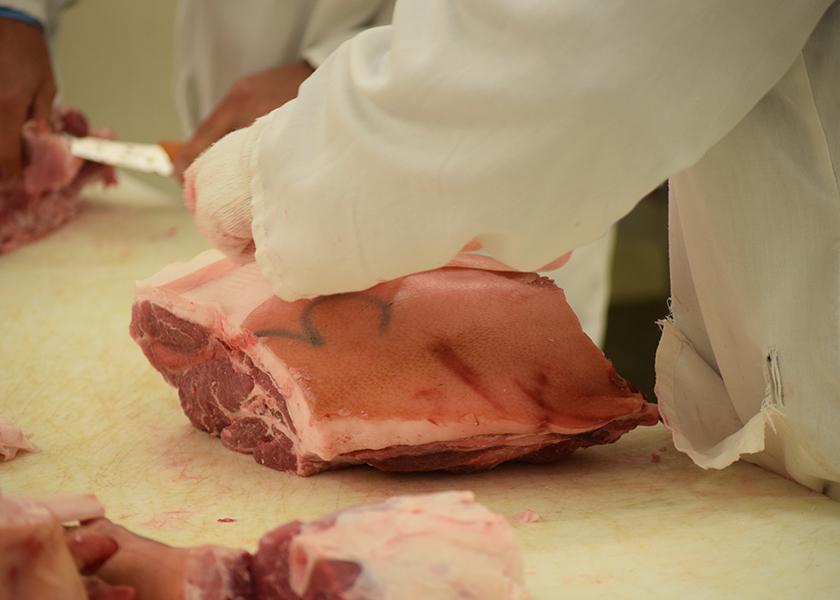K-State Launches Effort to Support Growth of Meat Processors in Kansas

A rush to locally produced meat partly necessitated more than two years ago by the onset of the COVID-19 pandemic has spawned consumer’s interest in direct-to-consumer processing businesses, said a group of Kansas State University experts.
Dustin Pendell, an agricultural economist with K-State Research and Extension, said that while consumers have always expressed an interest in locally processed meat, “Kansas has seen an increasing demand for local, direct-to-consumer meat processing businesses.”
Jessie Vipham, an assistant professor in K-State’s Department of Animal Sciences and Industry, noted that from January 2020 to March 2022, the Kansas Department of Agriculture granted licenses to seven new custom meat processing facilities in the state.
Plus, she notes, “the KDA’s meat and poultry inspection staff have spoken with at least 82 individuals who have expressed interest in operating a new custom or inspected meat processing facility in Kansas.”
In July, K-State’s Global Food Systems initiative awarded a grant to Vipham, Pendell and Rachel Mui – an assistant professor of management in K-State’s College of Business Administration -- to further develop the capacity of meat processing businesses in Kansas.
“As a university,” Mui said, “we have a charge to promote economic growth and prosperity, and as more and more people consider small business ownership -- especially in the meat processing arena -- we have a unique opportunity to make a lasting impact.”
“Ultimately, we hope to support small and very-small meat processors across Kansas, in terms of business expansion, business start-up and adoption of improved food safety practices,” Pendell said. “Specifically, we will conduct a needs assessment on the opportunities and constraints of small and very small meat processors when establishing or expanding a meat processing business.”
Pendell added the K-State group aims to develop individualized Food Safety Road Maps “that outline the food safety and inspection goals of each meat processor.”
The project team will be hosting five ‘Town Hall’ meetings across the state to meet with small meat processors about their current needs.
“By working alongside local meat processors, we hope to better understand their needs from both industry-specific and entrepreneurial perspectives, and help them effectively address them, while identifying new opportunities and efficiencies at the same time,” Mui said.
The project will include K-State business students. Vipham said additional support has been received from the Kansas Department of Agriculture, Kansas Meat Processors Association, Kansas Small Business Development Center and the K-State Research and Extension local food systems transdisciplinary team.
“This project is exciting because it is truly a collaborative effort across multiple K-State colleges and departments, as well as multiple Kansas partners both public and private,” Vipham said.
More from Farm Journal's PORK:
Getting Back to Basics: The Role of pH in Pork Quality
USDA Announces More Money for Meat Processing Capacity, New Efforts to Strengthen Food Supply Chain







